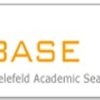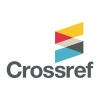Perbedaan Persepsi dan Kemandirian Belajar Siswa SMA Terhadap Pembelajaran Daring Ditinjau Dari Gender
Abstract
Full Text:
PDFReferences
Darr, C. & Fisher, J. (2004). Self regulated learning in the mathematics class. Paper presented at NZARE Conference, Turning the Kaleidoscope, Wellington, 24- 26 November 2004.
Fuad, M. N. (2016). Representasi matematis siswa sma dalam memecahkan masalah persamaan kuadrat ditinjau dari perbedaan gender . Kreano: Jurnal Matematika Kreatif-Inovatif, 7(2), 145-152.
Hoang, T. N. (2008). The effects of grade level, gender, and ethnicity on attitude and learning environment in mathematics in high school. International Electronic Journal of Mathematics Education, 3(1), 47-59.
Lestari, K. E., & Yudhanegara, M. R. (2017). Penelitian pendidikan matematika. Bandung: PT Refika Aditia.
Pakpahan, R., & Fitriani, Y. (2020). Analisa pemanfaatan teknologi informasi dalam pembelajaran jarak jauh di tengah pandemi virus corona covid-19. Journal of Information System, Applied, Management, Accounting and Research, 4(2), 30-36.
Pamuji, T., Budiyono., & Yuzianah, D., (2014). Persepsi terhadap mata pelajaran matematika siswa smp kelas viii. Jurnal Ekuivalen, 293-298.
Pradika, L., & Syamsuri, S. (2019). Penfaruh diskusi kelompok dalam pembelajaran matematika terhadap sikap dan hasil belajar siswa SMP di Kota Serang. TIRTAMATH: Jurnal Penelitian dan Pengajaran Matematika, 1(1), 47-59.
Prihasyto, M., Nindiasari, H., & Syamsuri, S. (2019). Pendekatan Problem Centered Learning terhadap kemampuan pemecahan masalah dan kemandirian belajar matematika ditinjau dari gaya belajar. TIRTAMATH: Jurnal Penelitian dan Pengajaran Matematika, 1(1), 16-34.
Rakhmat, J. (2007). Psikologi komunikasi. Bandung: Remaja Rosdakarya.
Ruseffendi. (2005). Dasar-dasar penelitian pendidikan dan bidang noneksakta lainnya. Bandung: Tarsino.
Schunk, D.H. & Zimmerman, B.J. (1994). Self-regulation in education: retrospect and prospect. In D.H Schunk & B.J. Zimmerman (Eds.), Self-regulation of learning and performance. Hillsdale, NJ: Erlbaum.
Singh, G., ’donoghue, J. O., & Worton, H. (2005). A study into the effects of elearning on higher education. Journal of University Teaching & Learning Practice , 2(1), 237-244.
DOI: http://dx.doi.org/10.48181/tirtamath.v2i2.8901
Refbacks
- There are currently no refbacks.
Copyright (c) 2020 TIRTAMATH: Jurnal Penelitian dan Pengajaran Matematika
Ciptaan disebarluaskan di bawah Lisensi Creative Commons Atribusi 4.0 Internasional .
Tirtamath: Jurnal Penelitian dan Pengajaran Matematika. Jurnal ini diterbitkan oleh Program Studi Magister Pendidikan Matematika Universitas Sultan Ageng Tirtayasa (cetak) dan Jurnal Untirta (eprint).
Alamat Penerbit: Program Studi Magister Pendidikan Matematika Kampus FKIP Untirta Jl. Ciwaru Raya, Cipare, Kec. Serang, Kota Serang, Banten 42117, Email: [email protected] |Klik untuk mengakses: Tirtamath: Jurnal Penelitian dan Pengajaran Matematika






